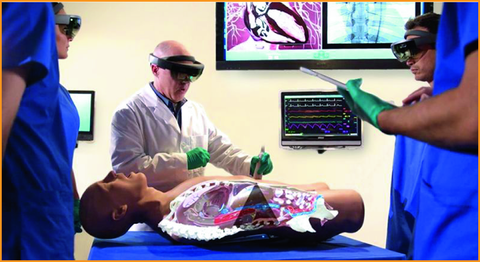
Running in the Mainframe
Prepare for Virtual Reality

Video games have always been seen as the forefront of interactive media, and with good reason. Over the years, there have been plenty of leaps and bounds in terms of technological advancement, and video games are usually front and center in that march. Going from displaying blocky pixel art to hyper realistic graphics is no small feat. And while higher frame rates and crisper sounds are always solid states in the race towards advancements, no other achievement has been more sought after by the industry than virtual reality.
Even before we were introduced to 32 bit graphics, there have been plenty of attempts at virtual reality. And while we’re only currently making significant progress with it in the form of Oculus, Vive, or the PSVR, other industries are also experiencing the fruits of research brought about by the video game industry.

Architecture is one of the first industries that used VR for non-entertainment purposes, going as far back as the ‘90s to prop up schematics in a virtual space and allow architects to view plans in angles that they would otherwise not be able to see. These days, even entire cities are being simulated in a virtual space.

One of the more well-known applications of VR outside of video gaming is in the medical field. It has been used for rehabilitation purposes, such as exposure therapy for anxiety disorders. Behavioral activation also utilizes VR to help patients with depression. Surgeons that are still not used to the operating room have also been using VR to practice their surgical skills without ever needing to practice on actual cases. Recently, it has also been used for medical simulation training in the current COVID-19 situation in lieu of educators.

For police departments around the country, virtual reality is where it’s at in terms of providing solutions to these problems that they’ve been having. There have been plenty of instances of police brutality happening around the world, and our country is no exception to that. Fortunately for us normal folk, the advent of technology has been providing plenty of avenues for us to air our grievances and accentuate the outcry that the citizens have been feeling regarding these incidents. With the use of virtual reality, police officers have been training their de-escalation tactics in a bid towards making strides in peaceful encounters in situations that will not pose any threats to actual lives.
However, as with all new technology, studies on the benefits of actually using VR have been near impossible to determine without extensive reviews made by independent agencies. Evidence for the benefits of using VR to rehabilitate Parkinson’s disease patients are sparse, especially when compared to other methods. Similarly, de-escalation training for the police force using VR is still unproven ground, especially since it would be pretty hard to simulate the varying non-verbal cues from actual humans in a simulation. Despite these problems that VR is currently facing, one thing is for certain: technology will continue to march on, and VR will be even more sophisticated in the near future that it is now.



